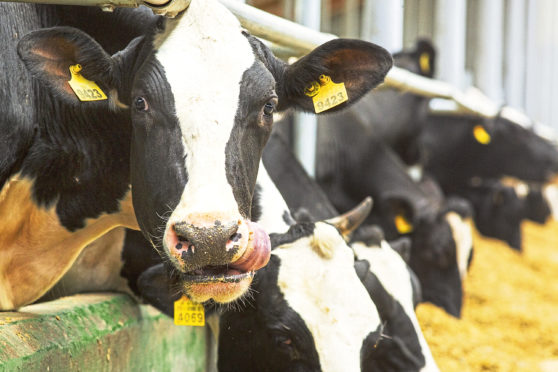Dairy farmers say they need government support to survive the Covid-19 lockdown as demand from cafes and restaurants has dried up.
Some dairy farmers are reporting having to pour milk away because it is not being picked up by processors in the face of a drop in demand from the food services sector and, in some cases, staff shortages.
The Royal Association of British Dairy Farmers (RABDF) is calling on government to help fund a short-term financial support scheme for dairy farmers whose businesses have been severely affected by the pandemic.
The short-term scheme would ensure dairy farmers stay in business through the crisis, and are able to start resupplying restaurants, hotels and cafes when the lockdown eases and food outlets reopen.
A failure to back dairy farmers could disrupt the market and lead to a lack of supply later in the year, the association warned.
It wants the government to reimburse farmers who are receiving a significantly reduced value for their milk or are having to dispose of it because their processor is heavily reliant on the food service sector.
Around 300 dairy farmers, who produce around one million litres of milk a day, could benefit from such a scheme.
Under the plans put forward by the association, dairy farmers would be reimbursed directly by the government up to their standard milk price. They would only be eligible if they supply a processor who can show their market has been affected solely from the impact of Covid-19, and it is hoped the scheme could be up and running by the end of April.
RABDF chairman Peter Alvis said: “This scheme will ensure both short-term and longer-term food security and ease the stress on the industry.
“It will also allow those affected dairy farmers to continue to pay for invoices for farm inputs to the wider local/rural supply industry beyond the farm gate and will prevent extra cows being culled which will exacerbate the problems in the beef supply chain.”
A Defra spokesman said: “We have taken a number of measures to support our food and farming sectors to manage the impact of coronavirus on the dairy supply chain.
“We are also working very closely with farmer and processor representatives to understand the specific challenges that the dairy sector is facing.
“Frequent discussions with the dairy supply chain will continue through this crucial period to understand what further support the sector needs.”
